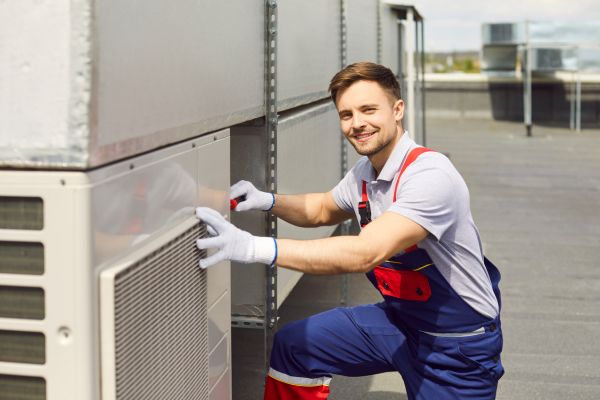A noisy HVAC system can be more than just an annoyance; it may be a warning sign that something isn’t right. Whether it’s a rattling, buzzing, or banging sound, unusual noises coming from your heating, ventilation, and air conditioning setup deserve immediate attention. Understanding how to approach troubleshooting a noisy HVAC system can save you time, money, and unnecessary stress.
Understanding Why HVAC Systems Make Noise
Every HVAC system produces a certain level of sound while operating. However, when those sounds become unusually loud or take on strange characteristics, they often indicate underlying issues. Knowing the possible causes of noise is the first step toward effective troubleshooting. From loose parts to airflow problems, there are numerous factors that could be responsible for your system’s unusual sounds.
Common Causes of HVAC Noise and Their Solutions
When it comes to troubleshooting a noisy HVAC system, identifying the type of noise can give you valuable clues. A rattling sound may suggest loose screws or components within the unit. Over time, vibrations can loosen parts and create a persistent rattle. Tightening these parts can often resolve the issue quickly.
Buzzing noises, on the other hand, could point to electrical problems. Faulty wiring or a failing capacitor might be the culprit. In these cases, it’s wise to consult a professional HVAC technician as handling electrical components without proper expertise can be dangerous.
If you hear a banging sound when the system starts or stops, it might be due to ductwork expansion or contraction. Metal ducts naturally expand and contract with temperature changes, but excessive banging could mean the ducts are improperly sized or installed. Adding insulation or professional ductwork adjustment can reduce these sounds significantly.
Squealing or screeching often indicates belt issues in older systems. Worn-out or misaligned belts may require replacement. Newer systems typically use direct-drive motors that eliminate belt-related noises, but if you hear high-pitched sounds, it’s still essential to check the motor bearings or blower assembly.
The Role of Regular Maintenance in Noise Prevention
Preventive maintenance is key to avoiding noisy HVAC problems before they begin. Regular inspections and tune-ups keep your system running smoothly and quietly. Changing air filters routinely improves airflow, preventing strain on the system that can lead to buzzing or whistling sounds. Cleaning dust and debris from around the outdoor unit also reduces the chance of foreign objects causing rattles or vibrations.
Professional HVAC maintenance involves checking all mechanical components, lubricating moving parts, and ensuring electrical connections are secure. A well-maintained system not only operates more quietly but also extends its lifespan and improves energy efficiency.
When to Call a Professional for HVAC Noise Issues
While some HVAC noises can be resolved with simple fixes like tightening screws or replacing filters, other issues require professional expertise. Persistent or worsening sounds, especially those related to electrical components or refrigerant lines, should never be ignored. A certified technician can diagnose complex problems accurately and perform necessary repairs safely.
Delaying service could lead to more extensive damage, turning a minor noise into a costly repair or even a system replacement. Trusting a professional ensures that your HVAC system receives the care it needs to operate safely and efficiently.
Why Addressing HVAC Noise Early Matters
Ignoring a noisy HVAC system is tempting, especially if the sound is intermittent or doesn’t seem urgent. However, these noises often serve as early warning signs of mechanical failure or inefficiencies. By addressing them promptly, you protect your investment and maintain a comfortable living environment. Proactive troubleshooting also helps keep energy bills under control, as a struggling system often consumes more power.
Creating a Quieter and More Comfortable Home
Troubleshooting a noisy HVAC system not only resolves the immediate disturbance but also contributes to a healthier, more peaceful home. A quiet system works more efficiently, providing consistent temperature control without drawing unwanted attention to itself. With regular maintenance and prompt attention to unusual sounds, your HVAC system can deliver years of reliable comfort.
Final Thoughts on Troubleshooting a Noisy HVAC System
A noisy HVAC system should never be dismissed as a minor inconvenience. Strange sounds often signal mechanical issues that need prompt attention. By understanding the common causes and solutions, you can take the first steps in resolving the problem. However, when in doubt, calling in an experienced HVAC professional is the best course of action. With the right approach, you can restore your system to quiet operation and enjoy a more comfortable and energy-efficient home.




